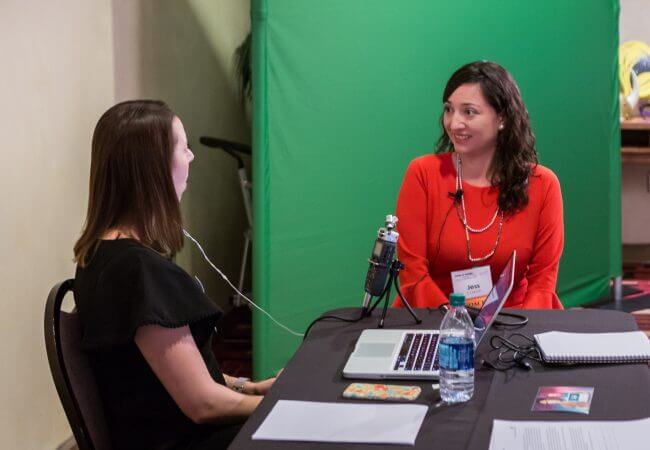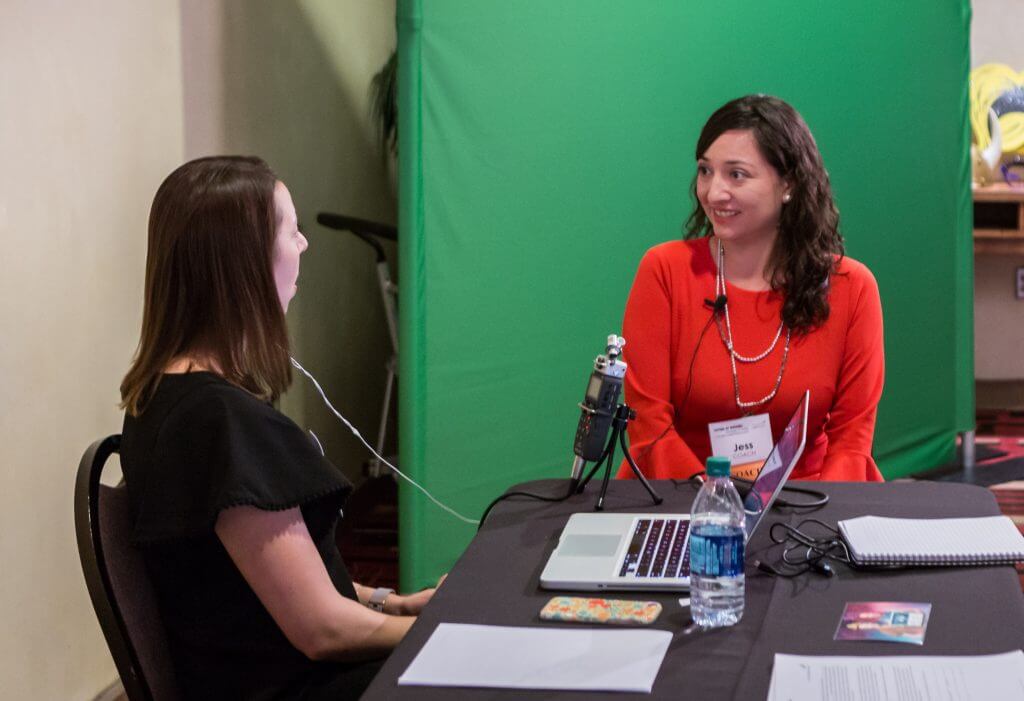
Aug 04, 2017
First Nurse at NCAA Is “Inspired to Keep Next Generation Healthy”
This is the sixth in a series of profiles of leaders who are part of the Campaign talking about their connections to the nursing or health care profession and their interests in healthier communities.
Jessica Gonzalez, MPH, BSN, RN, CLC, is assistant director of prevention and health promotion at the NCAA Sport Science Institute. Gonzalez’s 11-year commitment to health care has improved the lives of under-served communities along the Texas border, vulnerable populations across Indiana, and now college athletes. She works with the Indiana Action Coalition to create a culture of health by advocating for diversity and mentoring, and serves on the board of the Indiana Public Health Association. She earned her Bachelor of Science in Nursing from the University of Texas-Pan American and her Master of Public Health from the Indiana University Richard M. Fairbanks School of Public Health. Gonzalez is part of the Campaign Outreach Advocates for a Culture of Health program.
Why did you decide to become a nurse?
During high school, my grandfather was diagnosed with cancer. Seeing the care that the hospice nurses gave him and my family sparked my interest in the field; I wanted to be able to not only help my own family but others. Most recently, I assisted the hospice nurses when my aunt passed away—an experience that made me feel I’ve come full circle.
Can you describe your philosophical evolution from making that decision to where you are today?
If you had told me during nursing school that I’d be working with collegiate athletes, I would have said, “Really, I can do that?!” The wonderful thing about nursing is you can work and create a culture of health anywhere.
I’ve had the great experience of dabbling in different specialties such as long-term care, research, and maternal child home visiting, but found my passion in public health nursing. Now, I’m the first nurse to be hired at the NCAA Sport Science Institute, where I work on promoting the health and wellness of about half a million student-athletes in areas such as mental health, substance abuse prevention, sexual violence prevention, sleep, and nutrition. I have so much respect for the skills, discipline, and talents of student-athletes. I’m inspired to keep our next generation healthy for their lives on and off the field. Nursing has given me the opportunity to combine my passions of sports, wellness, and public health.
Of all that you have accomplished, what are you most proud of?
I’m most proud of my journey of being here because it was a fight against the odds.
My grandparents were immigrants from Mexico, and my father was part of the first generation navigating America. My parents—one a former migrant worker and the other a high school dropout—had me young, and life started in poverty. Tools such as Head Start and the support of my family led me to be a first-generation college graduate, which paved the way for my graduate degree in public health. Mentors provided the opportunities for me to study health care abroad in China and South Africa. I went from a 20-year-old taking her first flight to Washington, D.C., to trips across the globe. My background helped shaped my interest in serving diverse communities and shaped my philosophy of nursing.
In my early years, graduating from college seemed like such a far-fetched dream but wow, never did I think I’d be here.
If you could change the profession in any one way, what would you change and why?
I would rephrase the question and say if I could further advance the field of nursing it would be to continue to change the face of nursing. (I am taking a cue from my colleague, Jake Creviston!)
As America becomes more diverse, so should the field to match the demographics of the patients we serve. Being a bilingual nurse has allowed me to connect with patients, colleagues, and nursing students. But not just diversity of our field but also of the mindset of where nurses can work. If there’s a need for a health solution, nurses can be there at the table! I’d like the mindset to be:
I care because I’m a nurse but also because I’m a member of my community, where I work, live, and play. Because I’m a nurse I can help shape health for this generation and future ones. Because I’m a nurse, I can translate the needs of where I live to those abroad. Because I’m a nurse, I’m here to help.
What is the most important action that nurses can take to lead the way to improve health and health care in America?
We have to think outside of our profession and collaborate with other health colleagues and community stakeholders, work with all who care about our patients’ lives. As the largest health profession in the United States, nurses are primed to build interdisciplinary teams.
At the NCAA Sport Science Institute, I work alongside a chief medical officer, an athletic trainer and a health educator to look at improving safety and wellness for college athletes. For instance, when we look at how we can remove the stigma of mental health on campus and within athletics having the expertise of this diverse team helps me think of solutions from different perspectives. Our team also works collaboratively with public health professionals at the Institute to Promote Athlete Health and Wellness at the University of North Carolina at Greensboro to create educational tools to promote health in student-athletes.
What role do you see for yourself in building a healthier America?
I’ve had guidance from mentors who believed and invested their time in me. It was hard to navigate college as a minority, first-generation student and they were my lifelines. To build a healthier America, I am helping create a foundation of future leaders, diverse in their fields and backgrounds. My goals are to continue to seek learning opportunities in public health nursing and mentoring. Through the Future of Nursing: Campaign for Action, I mentor an extraordinary second-career nurse who’s shaping the culture of health in Kentucky. If you get invited to the table, bring someone new with you. As health care changes, we need the skills and assets of our colleagues in and out of the field.

